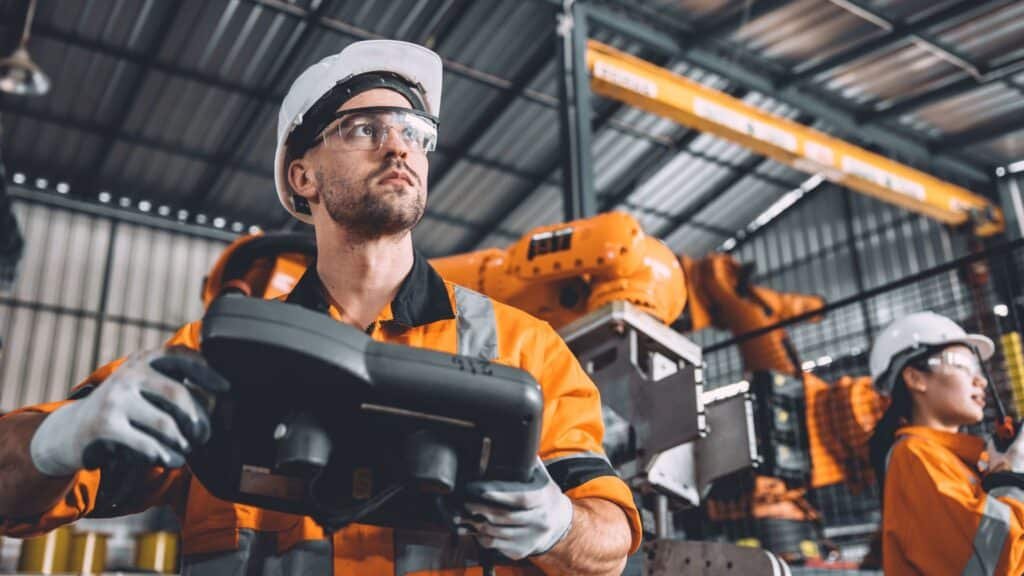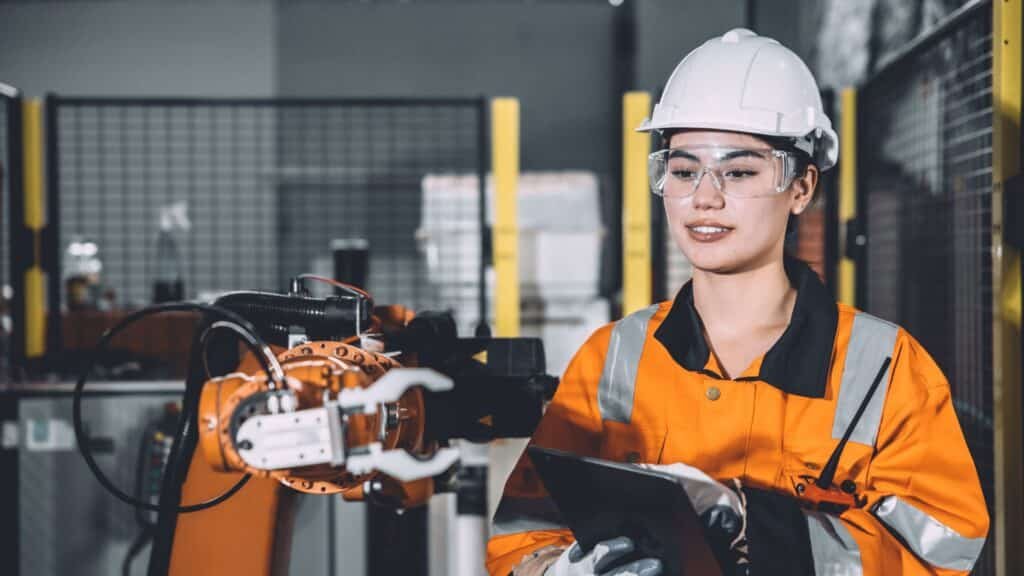The artificial intelligence in industrial engineering will be a fundamental pillar in 2025. With its ability to automate processes, analyze large volumes of data and improve productivity, this technology is already revolutionizing the industry. But what are the real benefits and challenges of implementing artificial intelligence in industrial engineering? We explain everything in detail.

What does artificial intelligence bring to Industrial Engineering?
Artificial intelligence allows companies to make more accurate decisions, optimize resources and anticipate problems. Thanks to its implementation, industrial engineering is achieving:
1. Advanced process automation
AI optimizes repetitive tasks, improving operational efficiency. Factories of the future will use automated systems to manage production with less human intervention and much more precise control.
2. Data-driven decision making
By analyzing data in real time, industrial engineers can anticipate potential errors, adjust processes and make more informed decisions.
3. Predictive maintenance
One of the biggest advances is the ability to predict problems in machinery before they occur. This reduces downtime and operating costs.
Advantages of artificial intelligence in industrial engineering
The incorporation of AI in industrial engineering brings with it very significant benefits:
- Reduction of operating costs: Less waste of materials and efficient resource management.
- Increased productivity: Automation allows you to do more tasks in less time.
- Quality control: AI detects errors and defects in real time, improving quality standards.
- Process customization: AI tools adapt industrial processes to the specific needs of each company.
Disadvantages of implementing artificial intelligence
Despite its many advantages, the artificial intelligence in industrial engineering also presents significant challenges:
- Initial investment costs: Implementing AI-based technologies requires a strong investment, especially for small businesses.
- Resistance to change: Many professionals may feel uncertain about automating tasks and adapting to new tools.
- Need for specialized training:AI implementation requires qualified personnel capable of managing and maintaining these technologies.
- Technological dependence: Too much automation can create a dependency on systems, which poses a risk in the event of failures or cyberattacks.
Despite these challenges, the Digitalization and artificial intelligence will be a key investment to remain competitive in the industrial sector. If you want to know more about this topic, you can read our article on the Digitalization in Industrial Engineering.

Real applications of artificial intelligence in 2025
In 2025, we will see AI driving new ways of operating in industrial engineering:
- Smart supply chains: AI optimizes logistics, reduces delivery times and minimizes storage costs.
- Autonomous manufacturing:Robots and automated systems will manage entire factories, with minimal human intervention.
- Energy optimization: AI will detect consumption patterns and propose adjustments to reduce energy expenditure.
In addition, the Digitalization and new technologies will play a key role in this evolution, as you can discover in our article on New technologies in Industrial Engineering for 2025.
Artificial intelligence is redefining industrial processes and will be key to the future of Industrial Engineering in 2025. Despite the challenges, the opportunities are immense: greater efficiency, cost reduction and superior quality in processes.
Companies that embrace these technologies will position themselves at the forefront of the industry, while those that don't risk being left behind. Digitalisation, automation and artificial intelligence are not just a trend, but a necessity.
Are you ready to take the next step towards the future of engineering? 🚀



